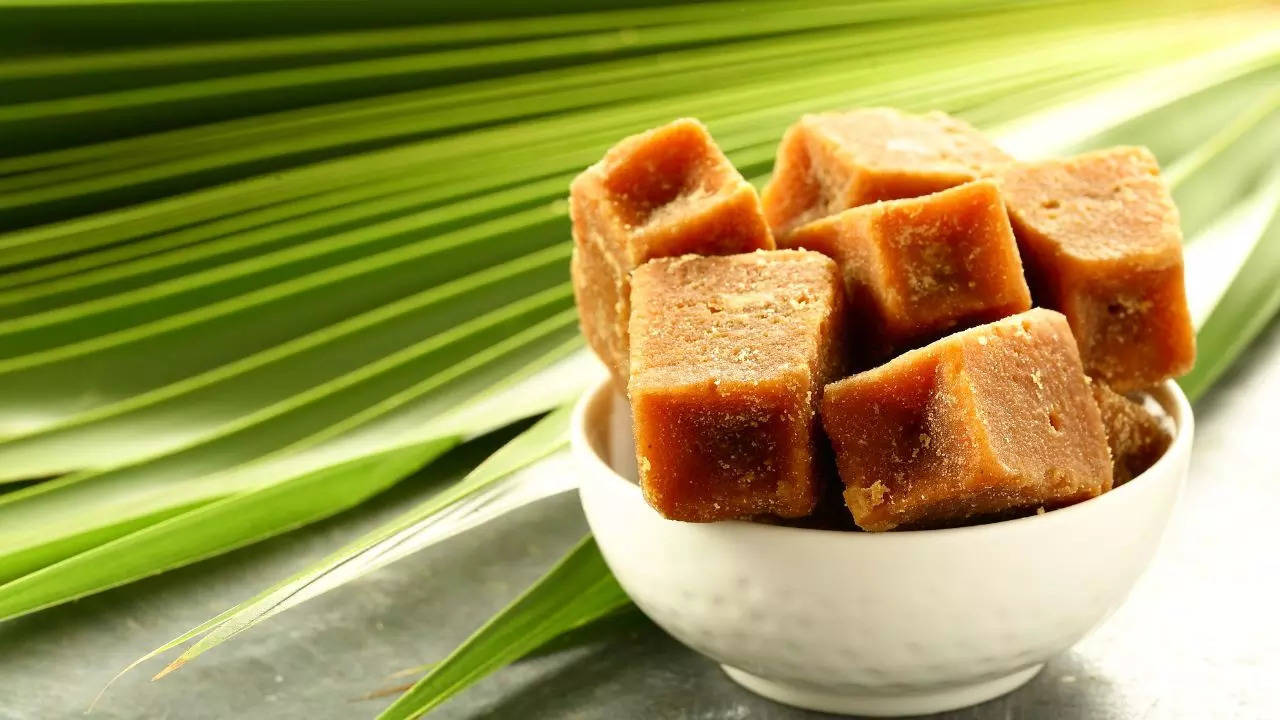
DIFFERENT TYPES OF JAGGERY (GUD OR GUR) AND WHY YOU SHOULD EAT THIS SUPERFOOD DAILY
Jaggery is a traditional sweetener that offers several health benefits and can be a great addition to your diet, especially during the winter season. There are different types of jaggery available in the market, each with its unique benefits. Here's a list of some of the benefits of jaggery and the various types of jaggery. But before we dive deep into this superfood, it is important to note that while jaggery has various health benefits, it is still a sweetener and should be consumed in moderation, especially if you have diabetes or are trying to manage your weight. Additionally, the quality and processing methods can vary, so it's a good idea to opt for organic or minimally processed jaggery for maximum health benefits.
Types of jaggery and their health benefits
Sugarcane Jaggery (Gur): This is the most common type of jaggery made from sugarcane juice. It is said that the darker the jaggery, the better it is. Moreover, sugarcane jaggery provides a wide range of benefits, including digestive aid, detoxication and essential nutrients.
Palm Jaggery: Made from the sap of palm trees, palm jaggery is known for its high iron content. It is a good choice for individuals looking to boost their iron intake.
Date Palm Jaggery: Date palm jaggery is derived from date palm sap and is rich in minerals and antioxidants. It is also known as khajoor jaggery. This sweetener is particularly popular in some Middle Eastern and Asian cuisines.
Coconut Jaggery: Made from the sap of coconut palm trees, coconut jaggery is a great source of potassium and has a unique, caramel-like flavor. In a lot of cultures, coconut jaggery is more popular than sugarcane jaggery.
Black Jaggery: This type of jaggery is often combined with various herbs and spices to create traditional Ayurvedic medicines. It is believed to have additional medicinal properties.
Sesame Jaggery: Sesame jaggery is made by combining jaggery with roasted sesame seeds. It provides the benefits of both jaggery and sesame seeds, including a good dose of calcium.
Benefits of Jaggery:
Rich in Nutrients: Jaggery is a good source of essential minerals like iron, magnesium, and potassium. It also contains small amounts of B vitamins and antioxidants.
Boosts Energy: Jaggery is a natural source of energy due to its high carbohydrate content. It can provide a quick energy boost and combat fatigue.
Digestive Aid: Consuming jaggery after a meal is believed to aid in digestion. It can help relieve constipation and improve overall digestive health.
Detoxification: Jaggery is known to help in the detoxification of the liver. It helps to flush out toxins from the body and purify the blood.
Respiratory Health: In some traditional remedies, jaggery is used to treat respiratory issues like coughs and colds. It is often combined with ginger to provide relief from these ailments.
Anemia Prevention: The iron content in jaggery can help prevent and treat iron-deficiency anemia. It contributes to the production of red blood cells.
Weight Loss: Jaggery is a better alternative to refined sugar for those looking to manage their weight. It is lower in calories and can be a healthier sweetener option.
Skin Health: Jaggery contains antioxidants that may help improve skin health and combat signs of aging.
Disclaimer: The information provided in this article is intended for general informational purposes only. It is not a substitute for professional medical advice, diagnosis, or treatment. Always seek the advice of your physician or another qualified healthcare provider with any questions you may have regarding a medical condition.
2023-10-20T06:30:05Z dg43tfdfdgfd